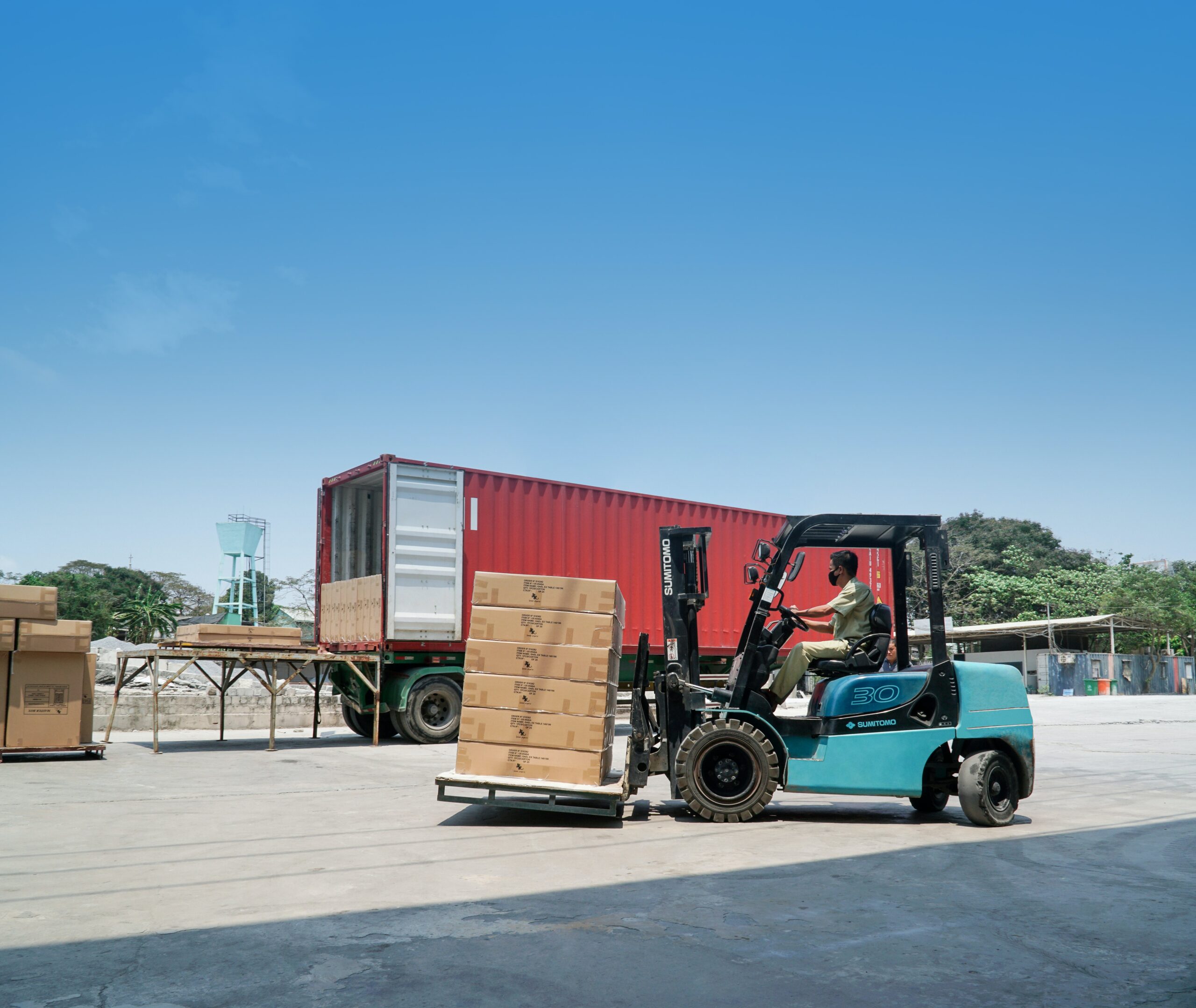Missouri’s roads see a constant flow of commercial vehicles. The commercial vehicle regulations in Missouri are essential, not just as rules but as tools for ensuring road safety and efficient transportation. They set clear standards, preventing accidents and ensuring smooth operations throughout the state.
What Qualifies As A Commercial Vehicle In Missouri?

In Missouri, a commercial vehicle is defined based on specific criteria that distinguish it from regular personal vehicles. These criteria often relate to the vehicle’s purpose, weight, and capacity. For instance, vehicles used primarily for transporting goods or passengers for compensation, or those exceeding a certain weight threshold, typically fall under the commercial category.
Related Links
- St. Louis Car Accident Lawyers
- Why Vehicle Inspections Are Crucial To Car Accident Injury Cases
- 11 Common Causes Of Truck Accidents In St. Louis
- Autonomous Vehicles On The Rise: Can Motorcyclists Trust Them?
- Semi-Truck Safety Tips: Sharing The Road Safely
- Quick Safety Tips For Driving In Snow And Ice
Missouri categorizes commercial vehicles into several types based on their intended use and specifications. Some common types include:
- Heavy Trucks: Often used for transporting large quantities of goods.
- Passenger Buses: Designed to carry multiple passengers, typically for a fare.
- Tanker Vehicles: Used for transporting liquids or gaseous materials.
- Hazardous Material Vehicles: Special vehicles equipped to carry potentially dangerous goods.
Each of these categories has its own set of regulations and requirements, ensuring the safety and efficiency of transportation across the state.
Commercial Vehicle Regulations, Standards And Requirements In Missouri
Licensing Requirements
In Missouri, a Commercial Driver’s License (CDL) is essential for those operating commercial vehicles, ensuring they have specialized training to manage such vehicles safely. The state offers various CDL classes: Class A for large combination vehicles, Class B for large single vehicles, and Class C for vehicles transporting numerous passengers or hazardous materials. To obtain a CDL in Missouri, one must first secure an instruction permit by passing knowledge tests, followed by a skills test in a relevant vehicle, before being granted the full CDL.
- Identification Requirements: Commercial trucks must display the carrier’s legal name and US DOT identification number.
Vehicle Inspection And Maintenance
Regular inspections of commercial vehicles in Missouri are pivotal for safety and optimal performance, with key components like brakes, tires, and lights thoroughly evaluated. Typically conducted annually, these assessments ensure potential issues are addressed promptly. The Missouri Department of Transportation oversees these inspections, setting standards to ensure vehicles meet safety and operational criteria, thereby safeguarding drivers and the public alike.
- Inspection Reports: Truck drivers must prepare a written inspection report at the end of any driving day if they discover or are informed of a vehicle defect during a roadside inspection. The report should cover various parts, including brakes, trailer brake connections, tires, fuel levels, steering, headlights, signals, reflectors, windshield wipers, emergency equipment, coupling devices, and the horn. These inspection records must be kept for one year.
- Third-Party Safety Inspections: Commercial vehicles in Missouri must undergo periodic, third-party safety inspections conducted by qualified entities with an understanding of the inspection standards set by the FMCSA. These inspections should occur at least once every 12 months, and the inspection reports must be kept on file for 14 months.
Weight & Size Limits

In Missouri, commercial vehicles must adhere to specific weight and size limits, which vary based on the road type and location. These restrictions, encompassing weight, height, width, and length, are designed to protect road infrastructure and ensure safety. Overstepping these boundaries can lead to road damage, increased accident risk, and penalties ranging from fines to the loss of commercial driving privileges.
- Maximum Width: Commercial trucks must not exceed a width of 102 inches.
- Maximum Height: Trucks are limited to a maximum height of 14 feet on interstates and designated highways, 13.5 feet on all other state highways, and 15 feet in the five commercial zones of St. Louis, Columbia, Kansas City, Springfield, and St. Joseph.
- Axle Weight Limits: Trucks are allowed a maximum weight of 20,000 pounds per axle on interstates and 22,000 pounds on highways. Tandem axles have weight limits of 34,000 pounds on interstates and 36,000 pounds on highways.
- Maximum Trailer Length: Trailers cannot exceed a length of 53 feet on interstates and designated highways. On all other state highways, tractor-trailers are limited to a combined vehicle length of 65 feet.
- Gross Vehicle Weight Limit: The total gross vehicle weight cannot exceed 80,000 pounds. If a commercial vehicle is heavier, an oversize weight permit must be obtained from the Missouri Department of Transportation.
Cargo Regulations
Cargo regulations emphasize the importance of securely fastening goods to prevent transit-related accidents. Special rules apply to hazardous materials, necessitating specialized containers, proper labeling, and trained drivers. Additionally, transporting livestock requires measures to ensure animal welfare, while perishable goods often need temperature-controlled settings to maintain their quality and safety during transport.
- Cargo handling: Drivers must understand how to load, unload, block, and brace cargo safely.
Safety Regulations
Safety regulations in Missouri mandate seat belt use for all commercial vehicle occupants and require drivers to employ electronic logging devices to monitor driving hours, thereby preventing fatigue. Strict rules limit continuous driving hours, ensuring necessary breaks and rest. Additionally, commercial drivers are prohibited from substance use while operating, with regular testing in place to ensure they remain sober and alert on the roads.
- Age Requirements: Drivers must be at least 18 years old to operate in intrastate commerce and 21 years old to operate across state lines or transport hazardous materials.
- Language Skills: Drivers must be able to speak and read English well enough to communicate with others.
- Physical Capability: Drivers must have the physical ability to operate large vehicles safely.
- Hours-of-Service (HOS) Limitations: Drivers are subject to HOS limitations, including a maximum of 14 hours on duty and 11 hours driving before a required 10-hour rest period. There are also limits on the total hours on duty within a specific time period, and drivers must keep logs of their on-duty and driving time.
- Alcohol Regulations: Truck drivers are considered driving under the influence (DUI) if they have a blood alcohol concentration (BAC) of 0.04 percent or higher. Additionally, drivers are prohibited from keeping open containers of alcohol in their cabs.
Insurance Requirements

In Missouri, commercial vehicles must meet specific minimum insurance coverage requirements to protect against potential accident-related expenses. Maintaining valid insurance is crucial, not only as a legal obligation but also to shield businesses and drivers from significant financial impacts. Operating without the mandated insurance can result in severe penalties, from substantial fines to suspension of driving privileges or even legal consequences.
Environmental & Emission Standards
Adhering to environmental and emission standards for commercial vehicles is vital for both environmental protection and corporate responsibility. Regular emission tests ensure vehicles meet air quality standards, with the frequency often dependent on the vehicle’s age and type. Beyond environmental benefits, maintaining a green fleet can result in fuel savings and bolster a company’s reputation as environmentally conscious and responsible.
Avoid Penalties & Stay Up To Date
In Missouri, commercial transportation violations, such as the ones listed above, can lead to fines or driving suspensions. If believed to be wrongly penalized, individuals can contest through established state procedures. Given the ever-changing nature of these regulations, it’s imperative for drivers and companies to stay informed, minimizing the risk of unintentional breaches.
There are various resources and channels available to help professionals keep track of changing regulations. The Missouri Department of Transportation’s official website is a primary source, often publishing updates, guidelines, and relevant news. Trade associations and industry publications also offer insights, while seminars, workshops, and training sessions can provide in-depth knowledge and opportunities for discussion. Engaging with these resources ensures that those in the commercial vehicle sector remain at the forefront of best practices and regulatory compliance.
When Disaster Strikes, Call Cantor!
Understanding commercial vehicle regulations in Missouri is paramount for ensuring safety, compliance, and efficient operations on the state’s roads. These rules are meticulously crafted to protect both drivers and the general public.
However, even with strict adherence to regulations, accidents can still occur. If you find yourself involved in a truck accident, Cantor Injury Law stands ready to assist. With a deep understanding of Missouri’s transportation laws, our expertise can provide the guidance you need to navigate the legal system and ensure that your rights are protected.
Frequently Asked Questions About Commerical Vehicles
Q: Is A Food Truck Considered A Commercial Vehicle?
A: Yes, a food truck is considered a commercial vehicle. It is used for business purposes, such as selling food and beverages, and often requires special insurance and permits to operate legally on the road.
Q: Is A Box Truck A Commercial Vehicle?
A: Yes, a box truck is considered a commercial vehicle. It’s commonly used for transporting goods, making deliveries, and other business purposes, which typically requires commercial insurance and proper licensing to operate.
Q: Is A Sprinter Van Considered A Commerical Vehicle?
A: Yes, a Sprinter van is often considered a commercial vehicle, especially when it is used for business purposes such as transporting goods, equipment, or passengers. Whether it is classified as a commercial vehicle can depend on its use, size, and how it is registered. It may also require specific insurance and licensing.
